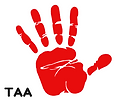

About Us
01.
Abusive Relationships touch all families from all cultural, educational, occupations, and backgrounds. Being stressed, angry, or drunk does not excuse violence. If your teen uses abusive behavior to get power and control in your family, don’ wait to get help. Violence in the home affects everyone in the family.
02.
Domestic violence is part of abusive behaviors in a romantic relationship or between family members. This may include abuse by a boyfriend, girlfriend, spouse or parent. The abusive behaviors can include physical, sexual, verbal and emotional abuse. Often, an abusive partner does this to have power and control over their victim. Domestic violence is a serious problem that affects all communities.
03.
Because every relationship is unique, domestic violence can take many forms. The types of abuse may range from verbal attacks and controlling behaviors, to physical and sexual assaults. It may be hard to recognize the early warning signs of abuse, and often the early incidents of abuse are minimized. Usually domestic violence is not a one-time incident and many find that the abuse occurs in a repeating cycle of violence. Each act of abuse may be followed by an apology, or the abusive partner may blame others for the abuse. As the relationship continues, the abuse may get worse and occur more frequently.
04.
What can I do?
-
The impact of domestic violence is felt by everyone, but you can make a difference.
-
If you are experiencing abuse, talk to someone you trust and consider getting help to end your relationship safely.
-
If you are abusing your partner, take responsibility for ending the abuse by getting help for yourself.
-
If you know someone experiencing abuse, educate yourself to be an important source of information and support.
-
Take action in your community by speaking out about the fight to end domestic violence.